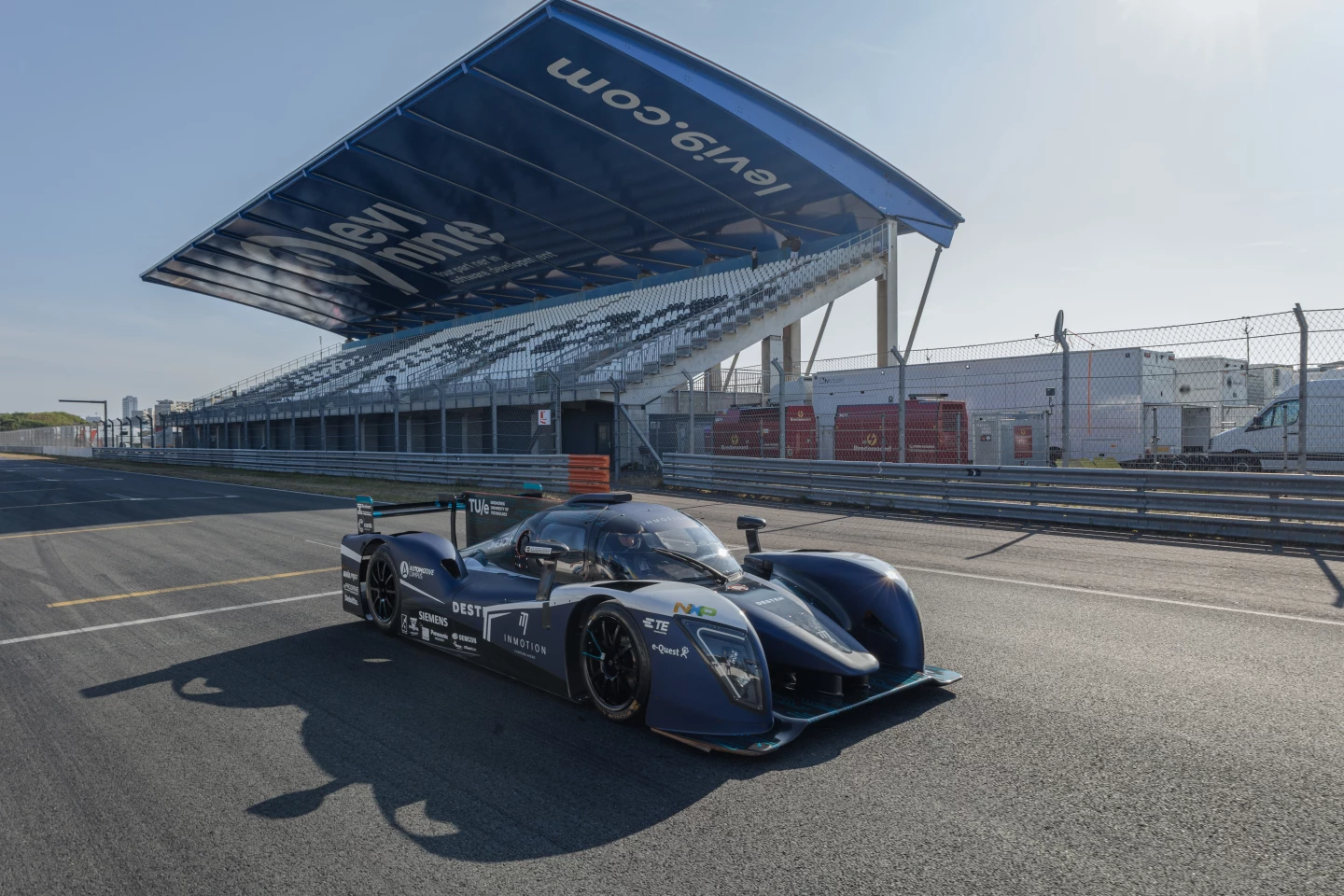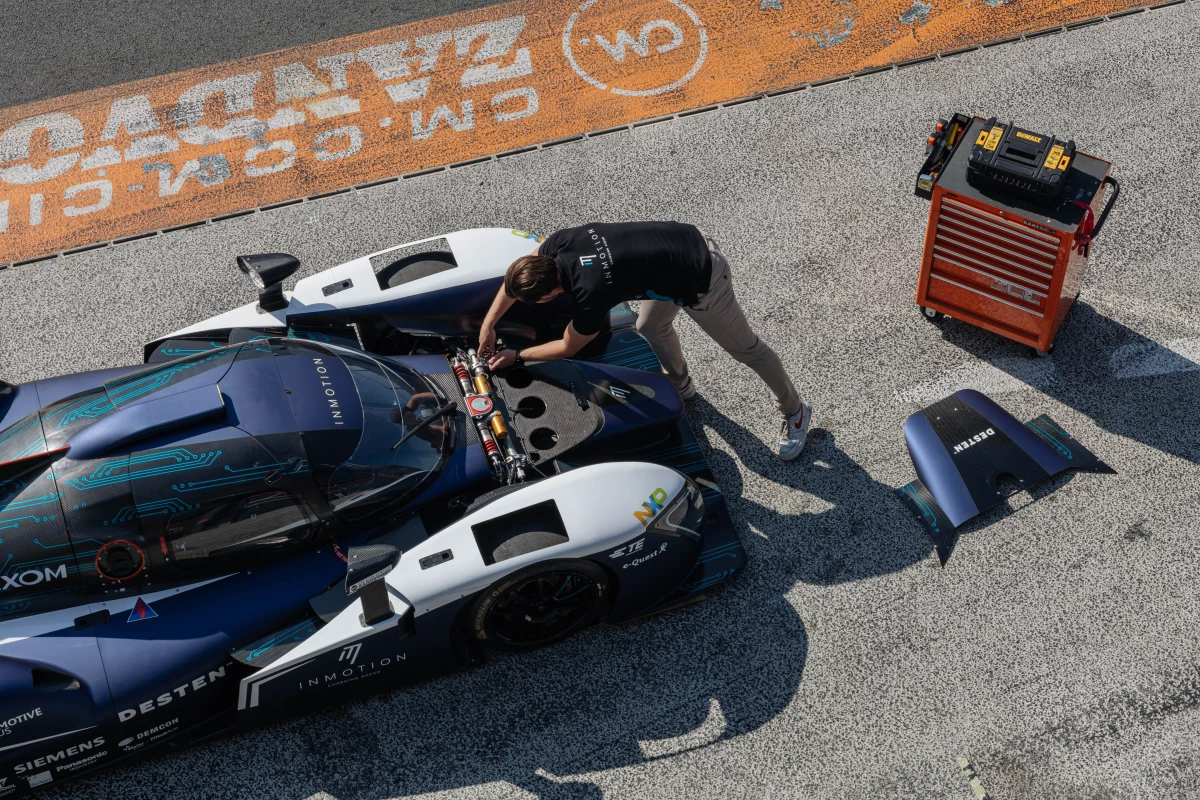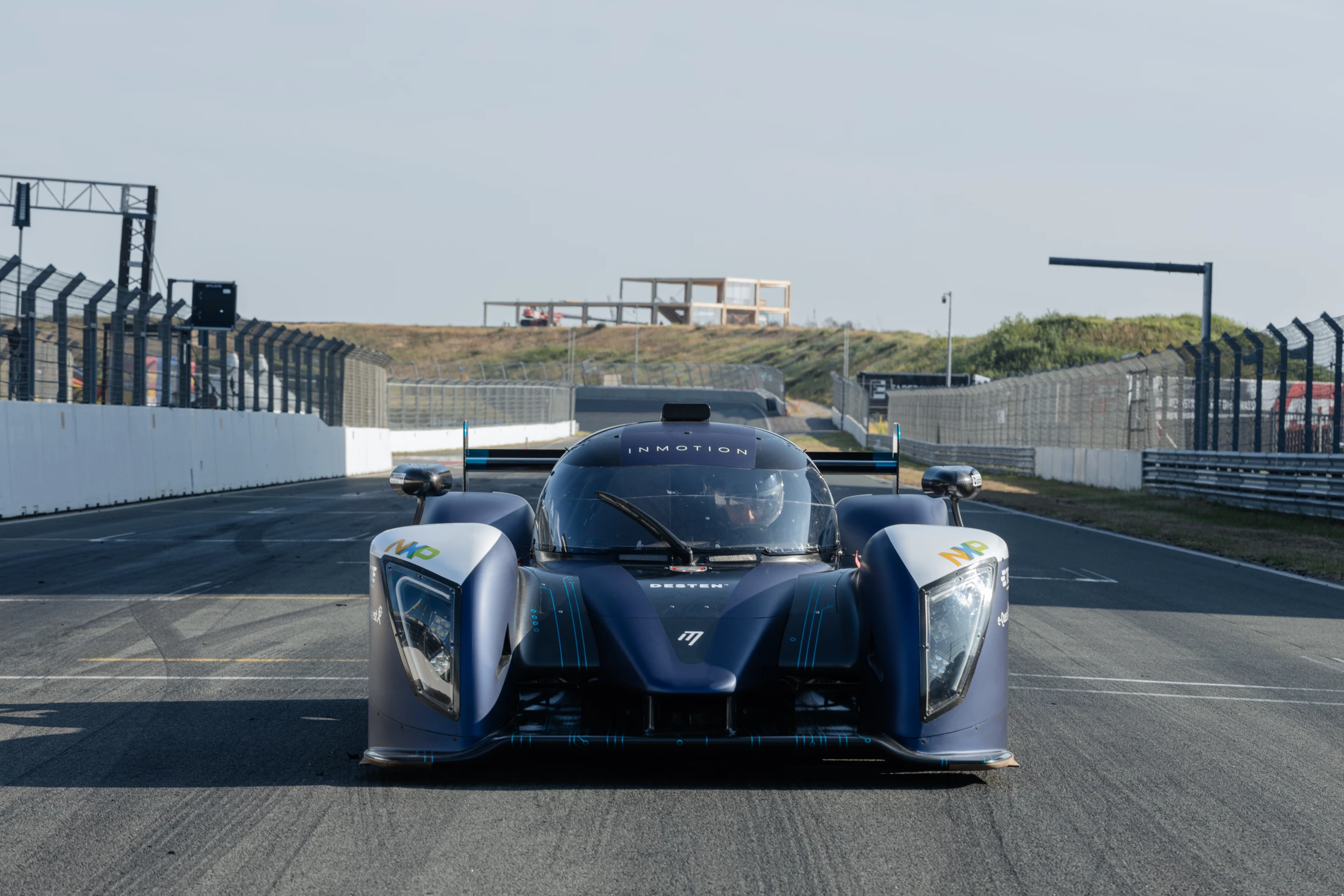It's often the case that technologies developed for racing vehicles trickle down to the wider automotive market. With an endurance race in its sights, a team of more than 30 students at Eindhoven University of Technology (TU/e) in the Netherlands has developed a technology that's allowed a 250-km battery pack to be fast-charged in under four minutes.
A few years ago, 10 students from TU/e joined forces to create the InMotion team, with hopes of building a technologically advanced electric racer that could take part in the 24 Hours of Le Mans endurance competition.
Since then, a number of vehicles have been built – and one or two lap records broken along the way. While developing the recent Revolution prototype, the team managed to get the battery pack to 80% capacity in 12 minutes. But that wasn't fast enough, so InMotion embarked on a two-year quest to significantly reduce plug-in times.
As the fast-charging process generates a lot of heat, the students – which now number more than 30 – had to find a way to stop the battery cells from quickly degrading during the fast-charging process.
"We developed an innovative cooling technology at module level, where cooling plates filled with coolant were placed between the modules containing the cells," said team manager, Julia Niemeijer. "This allowed us to extract a lot of heat from the pack. If you want to extract heat as efficiently as possible from the battery pack, you want to cool as close as possible to the battery cells. Therefore, we have developed a method that enables cooling at the cell level, with actual coolant flowing between each cell."

A 24-hour test of the setup resulted in minimal degradation of the battery, and a 29.2-kWh pack with a per-charge range of around 250 km (155 miles) was subsequently installed in the LMP3 prototype racecar – which is a special class of vehicle that allows "young drivers and new teams" to enter the Le Mans endurance competition.
The pack is rated for 322-kW fast-charging, and the InMotion crew managed to top it up in 3 minutes and 56 seconds, hopefully paving the way for super-quick pit stops. The vehicle prototype and its fast-charging battery are to undergo more extensive testing in the coming year, with a view to showcasing the technology at a future 24 Hours of Le Mans race. But the cooling architecture could mean big things for the larger EV space.
"Student teams like InMotion are important for pushing boundaries and testing new technologies in practice, triggered by challenging applications such as an electric race car," said Henk Jan Bergveld, part-time professor of Electrical Engineering at TU/e. "Faster battery charging in an electric car is certainly not trivial. It is crucial for faster market acceptance, where innovations such as a battery pack with highly optimized cooling will play a significant role."
Source: InMotion







